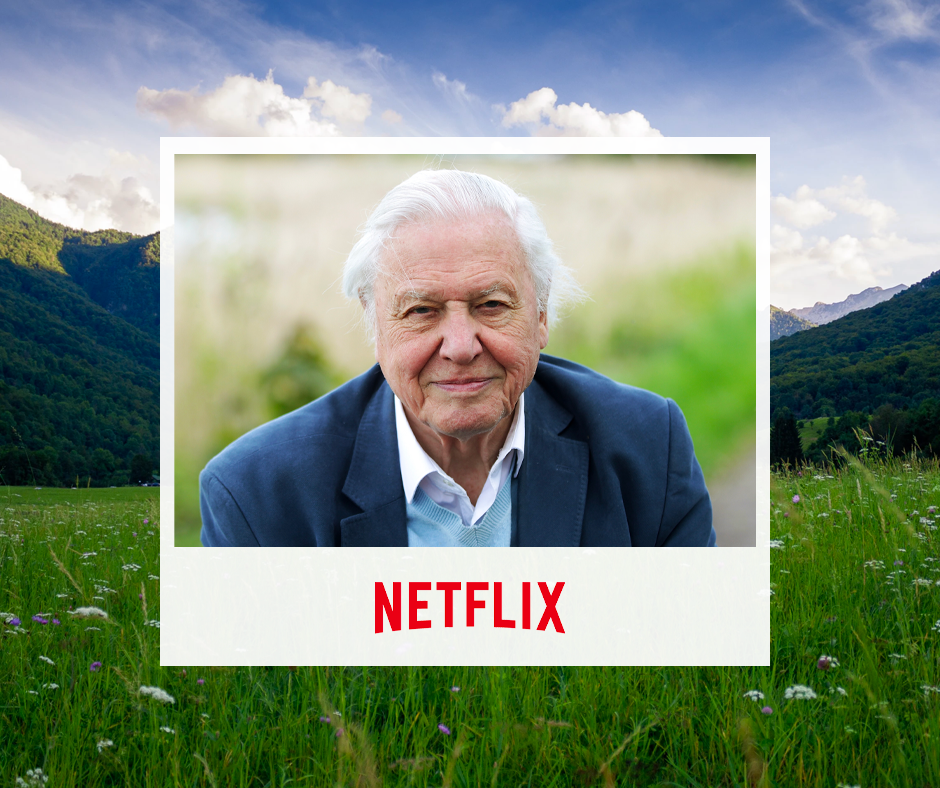What we learned from David Attenborough’s Netflix documentary, “A Life on Our Planet”

David Attenborough has spent his life documenting and exploring nature. He can be credited with bringing the uniqueness of our planet to living rooms everywhere, giving insight to the wonder and importance of nature. In his 96 years of life, Attenborough has witnessed the ways our world has changed up close.
Despite the many challenges our planet faces, including rising temperatures, wildlife endangerment, and overpopulation, “A Life on Our Planet” paints an optimistic future of possibility. Countries around the world are implementing solutions that are making a positive impact on the environment, wildlife, and human life. There’s a lot we can learn from these solutions:
Rewilding

As Attenborough puts it, “we must rewild the wild” and that is exactly what some nations are doing, including Costa Rica where a once lost forest has been restored to its lush, green glory. The changes that must be made to achieve such feats seem daunting and expensive but are simpler than you may think. If we are able to come together to find solutions to this crisis, the world may yet again be as wild as it once was.
Rewilding is the large-scale conservation effort to restore biodiversity and ecosystem health in critical areas. This is done by reintroducing apex predators, keystone species, and ramping up conservation efforts. There have been several successful rewilding projects internationally, one of the most notable being in Yellowstone National Park. The gray wolves in Yellowstone were hunted to extinction by local farmers who found them a nuisance. The depletion of the wolf population led to the overpopulation of elk which overgrazed the park’s fauna. This threw the entire ecosystem of Yellowstone out of balance until the wolves were reintroduced in the 1990s. Now Yellowstone’s ecosystem has begun to bounce back, the reintroduction of the wolves has become one of the most successful rewilding projects to date.
Population Management

The human population has grown exponentially, with no natural predators and technological advancements, we are living longer and reproducing just as much. This allows humankind to ignore its natural carrying capacity, growing far larger than the earth can support. There is a solution to this. Investing in development programs that improve the standard of living, better health care and education, simultaneously decrease birth rate. The documentary cities Japan as an example of this, a nation in which the birth rate fell dramatically, while standard of living improved. On a global scale this will decrease the global demand for resources, and decrease the strain on our world.
Renewable Energy

Utilizing our natural forms of energy, that do not contribute to carbon emissions, is also a solution for climate change. Morocco was previously dependent on fossil fuels for all of its energy, currently the nation produces around 40% of its energy from renewable power plants, featuring the world’s largest solar farm. Morocco’s commitment to developing renewable energy infrastructure has positioned it to possibly be an exporter of solar energy by 2050, which would generate economic growth for the nation, as well as decrease its contribution to carbon emissions. Renewables are one of the cleanier, most affordable, and resilient ways for us to save our planet.
Ocean Conservation

The ocean is also an important ally in our fight to reduce atmospheric carbon. With increased biodiversity and stable temperatures the ocean is better protected and more efficient at its job. Still, for many the ocean is an important source of food. In recent years the ocean has been severely overfished, jeopardizing the health of our oceans and greatly disrupting our food chain.
The Pacific Island nation of Palau has worked to develop a solution to this. Palau is reliant on coral reefs for fishing and tourism, as they noticed fish stocks were decreasing, the Palauans quickly restricted fishing practices and even banned fishing in some areas. These restrictions allowed fish populations to bounce back, allowing the reefs to recover and increasing the fishing stocks to increase. On an international scale the United Nations is attempting to create the largest no-fishing zone that will effectively create the greatest wildlife reserve, and allow marine life to flourish.
The David Attenborough: A Life on Our Planet documentary is an important reminder of the fight at hand, but also the hope we must carry. It’s not too late to overcome the planet’s challenges by utilizing the solutions in front of us. It is not too late to become a solutionsist! Change may be hard, but I am confident that we will find the wisdom to continue to evolve with our Planet Home.


Leave a Reply